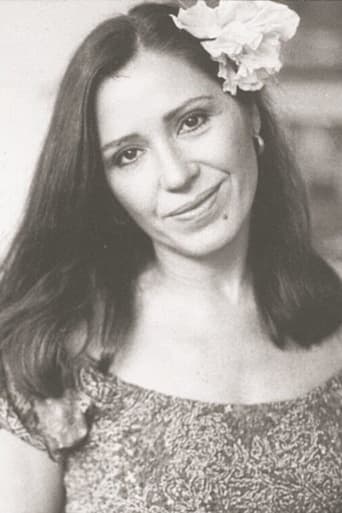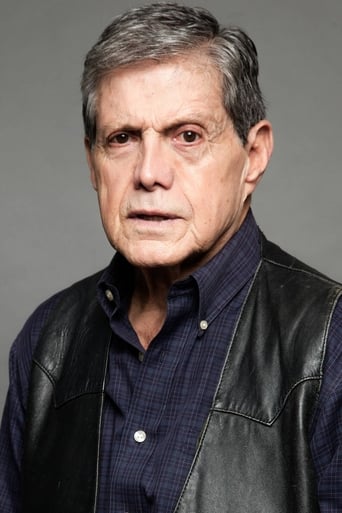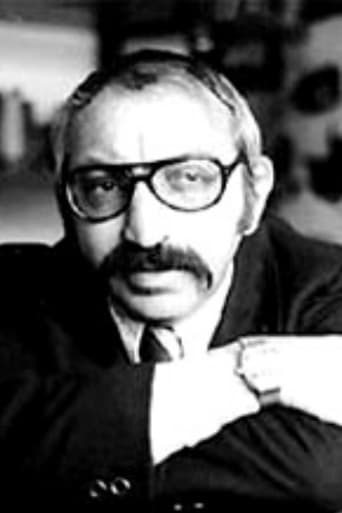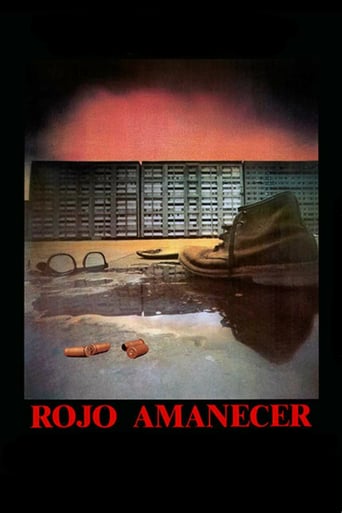
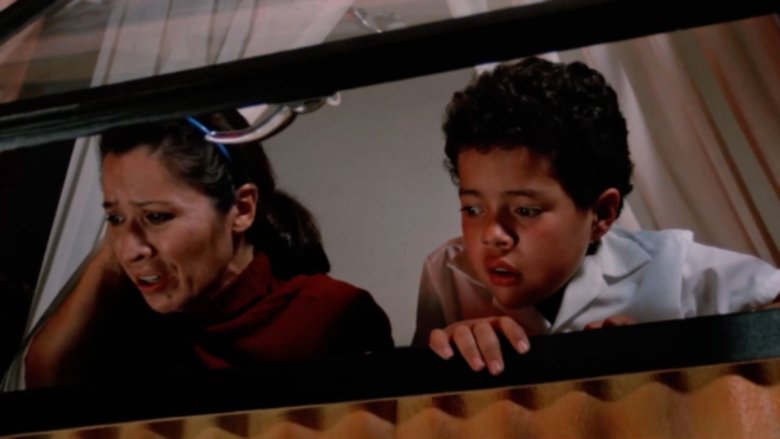
Red Dawn (1989)
On October 2, 1968, a student uprising descends into violence after the Mexican government begins to use lethal force against the protesters.
Watch Trailer
Cast


Reviews
This film is about one of the darkest pages of Mexican history. After almost 6 months of political tension between a huge student movement and different political institutions, Mexican government decides to use the military forces against them just 10 days before the Olympic Games. The result was a man slaughter against dozens of students. Director Jorge Fons presents the sequence of that day, October the 2nd. At the beginning we can see the calendar noting precisely that day, during the morning. A preface for a catastrophe. Then the members of the family are showed: the father (Héctor Bonilla) who works for the government and knows that something could be wrong in the confusing political environment; the grandfather (excellent performance by Jorge Fegán), former military member, retired and against any kind of subversive acts and of course against the student movement. The two oldest sons (Bichir brothers, Demian and Bruno) actively involved in all the aspects of the student riots. The mother (excellent performed by one of the most important Mexican contemporary filming actress, María Rojo) who is in the middle of every particular conflict; she is the mediator between every character in her family and try to keep the harmony in the house. Then the youngest kids (brother and sister) who barely understand what is happening, but are circumstantially witnesses of all events. In a very interesting sequence, all members are sharing breakfast in a traditional Mexican way. The environment is full of details: Beatles music on the radio, Che Guevara's picture on the wall, conversations about the massive concentration planned for the afternoon, discussions about the potential dangerous results of the student's riots, ideology about the circumstances around the movement, etc. Everything is in place to better understand the upcoming events. Fons then prepare the scene with apparently meaningless sequences: A blackout, a missing call from the husband, death telephones, some armed persons at the roof of the building when grand father and grand son are playing with small soldiers, the youngest sister going to a friend's house to do her homework. During the first hour all the action took place in the little apartment with apparently no signs of action. In fact nothing happens outside the apartment, but the director creates an atmosphere of tension and doubt before the important event of the day. The apartment is located in the middle of the tragedy. Outside, some other buildings creates an open square (named "Plaza de las tres culturas") and precisely there, the massive concentration of students is scheduled to start at 5 PM. The grandfather comments with his daughter about the military presence and the snipers at the roof of each building. Why? She asks. The answer is very simple: because they are prepared for something big. Then the massive meeting begins. In the apartment the little boy is doing his homework, the mother is sewing and the grand father is fixing an old watch, but we can clearly hear the speech, there is a lot of people outside. Everything is in calm, a disturbing calm. Then, the inevitable. Red lights on the sky and a lot of gun shots. The mother lean out of the window and start screaming: They are killing them!!! They are killing them!!! The second part of the movie begins, the sons arrived with four other students, one of them is wounded (Eduardo Palomo) and is bleeding badly. Outside the gun shots can be heard briefly but consistently, as well as the screams and the shouts. The grand father decides to pick up his grand daughter and we can see a sequence with military people hitting students and a lot of blood in the corridor. The students, safe at home start to talk about what happened down stairs, disturbing stories. Apparently the soldiers opened fire with no real reason, killing a lot of people, not only students but small children, civilians even senior citizens. The father finally arrives after midnight and tells the family about military trucks transporting dead bodies and naked people arrested and severely wounded. Then turned on the TV to see the news and the official version is that the military squads were being supported the police forces in order to calm down some urban fighting between students. Incredible, but media is controlled by the government, someone commented. Everyone goes to sleep and seems like the end of the movie is near, but some knockings at the door interrupt the peace and quiet at the apartment. Some voices claiming to open the door. Armed people, a lot of bad words. A tragic ending if you can figure out and the last scene is disturbing, the little boy is the only survivor and start walking outside the apartment seeing all the members of his family murdered. When he is in the square the last shot presented some military members cleaning up the mess. 10 days, just ten days after that episode, the Mexican President leaded the events for the Olympic Games opening. The film is very good, with strong acting performances and a solid screenplay (written by Guadalupe Ortega and Xavier Robles). The picture received 9 Ariel awards (oscar equivalent for Mexican pictures) including the golden Ariel for best picture, best directing for Fons, acting awards for María Rojo, Héctor Bonilla and Jorge Fegán and two awards for Ortega and Robles for screenplay and original story. Fons besides received a special jury award during the 1990 San Sebastian film festival where the film was nominated for the golden seashell. One more detail: Che Guevara picture on the oldest brothers room's wall is the classic photograph took by Korda and by that time (1968) was used as an icon for the student movement. Because of that picture, military people had an excuse to start looking for "subversive propaganda" and finally discover the hidden students and killed the whole family. A must see movie and obligated for Mexican citizens.
What makes this movie so disturbing as well as impressive, is that it chooses to avoid graphic displays and focuses on the psychological perspective a bit more. This movie demonstrates the effects that took place during the student movement in Mexico city during 1968. A movement that cost the lives of many innocent young people who were trying to gain their rights and fight for what they believed in opposition to the government. Don't expect to see any action packed scenes, any million dollar blowing up scenes, or gore/blood shots in every frame. The setting takes place inside a home, a home with an everyday family that unexpectedly becomes involved with the students and are forced to chose the right way or the human way. The suspense is quite nerve wrecking, although the setting only takes place inside an apartment, it builds up in such a way that you can understand what is going without ever even witnessing the outside. The ending may not be a "complete surprise", maybe it will deceive a bit, but it pays homage to that moment in time and it's not a disappointment in the least. An excellent film that displays the struggles from the different fighting sides, the good and the bad, and the consequences that such actions were capable of.
This is one of the greatest movies I've ever seen. It is, I can't deny, really crude even if it doesn't show images of the killing itself, but it clearly reflects what Mexico and its students went through that year. It is not a political correct movie, and the fact that talents such as Demián Bichir and Héctor Bonilla are in it has to show the magnitude of its quality. It's a pity that still today it's so hard to find and it's not shown on open TV, and it's a pity that still now a days there's so much info that we don't know about the subject, and it's a pity that still now a days some people think that those students and all those people gathered at the Plaza de las Tres Culturas actually deserved what they got. They were students, barely starting to live, for God's sake! Heard Cuarón is doing a new version of the 68 massacre, we gotta see how that goes, but I trust that he'll do justice to it, he is a great director and he was, after all, a kid at the moment all of this happened. He lived through this. I hope that movie does come out. "2 de octubre no se olvida"
ROJO AMANECER shows perfectly the situation that blackened the lives of hundreds of Mexicans back in 1968. People who watch the movie should understand the truth about the events and then watch the movie to get the director's point of view. Even if you think that the events happened in another way you should still watch this film.The killings in La Plaza de Las 3 culturas is the most terrible and violent event in Mexican contemporary story. This film showed what really happened in a crude and realistic way. The story is well crafted, the character development is great, and the explaination of how the events ocurred was perfectly narrated through the dramatic plot.The direction is excelent as it's a dramatic film based on real events, instead of a documentary the dramatic plot fit perfect. The acting couldn't have been better. Consolidated and talented actors like Héctor Bonilla, Maria Rojo, Eduardo Palomo, and Demián Bichir, give the best performances in the film. The score is crude but effective, works perfect with the tension of the film. The cinematography gave a documentary feel, still it worked great.ROJO AMANECER is without a doubt, one of the best Mexican films of all time. Not only for being a great produced film, it's a film that has the intention to show how things really happened, and sadly, nowadays the events shown in the movie are the pure reflection of a decadent Mexican society.Excelent film, recommended for everyone. ACTING 10 DIRECTION 10 SCORE 9 FUN FACTOR 109/10


